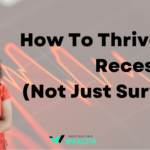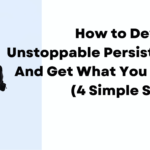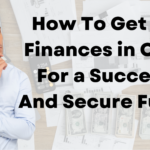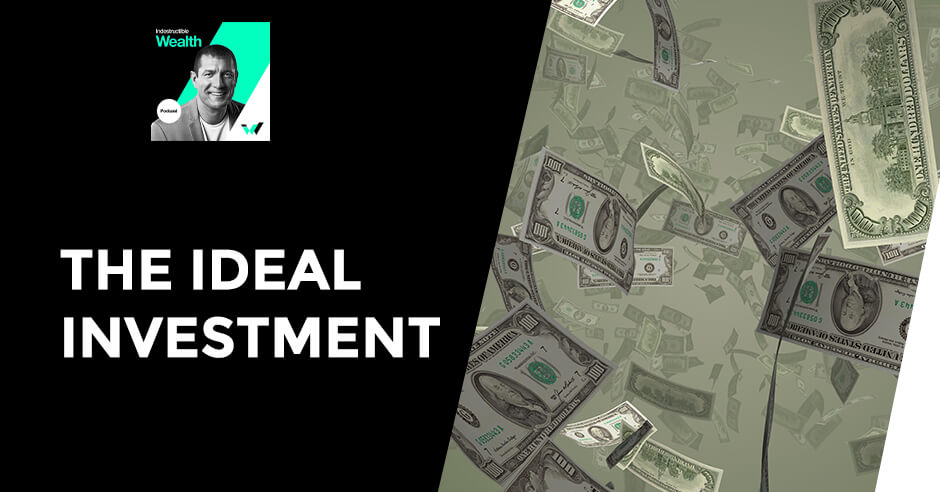
I didn’t accidentally hit caps lock, and I’m not yelling. The IDEAL in investment is an acronym. Today we’re talking about identifying real estate investments that work for you.
—
Table of Contents
Listen to the podcast here
The IDEAL Investment
I’m going to talk to you about the IDEAL investment. In real estate, IDEAL is an acronym. I’m going to walk you through that. I want to direct you all to my Instagram. I would like you to take a look at this particular Reel on this subject so you guys can see the numbers. Go to my Reel because I’m dominating the Instagram game. I would say influencer status approaching celebrity status-type at this point. I’ve pushed out four Reels, and my first one got 4,000 views, and it’s bombed since. I think they’re good though. I haven’t got the algorithm yet. I’m going to keep after it. This is the way that I’ve been studying that Reels are where Instagram is throwing all the algorithms and all the action because they want to compete with TikTok. I’m figuring this out so I can get more eyes on my show.
My username is @IndestructibleWealth, and there are not that many Reels on there. Maybe by the time you read this, there will be more because I’m doing one a day. I’ll be stacking it. Just watch them all. They take 30 seconds. I was totally scared about doing the Reels because I don’t know how to edit anything. I don’t enjoy that part. I can’t do much of anything successfully in 30 seconds or less. My dog camps up underneath me on the desk and occasionally, she just goes nuts. I’m not editing out shit anymore. I’m tired of that. Let’s be real and authentic, and you guys can deal with it.
What we’re going to talk to you guys about is we’re going to look at why real estate is the ideal investment. I want to give you guys an actual scenario so you can see why this is so powerful in terms of growing your overall wealth. Most millionaires have been built through real estate. Let’s be honest with the numbers. The numbers show that real estate creates more millionaires than any other asset class. Now, stocks are certainly more popular in terms of propaganda and media coverage and what people talk about. Real estate by far is trumping it.
It’s not even close. Why it is not talked about? We’ve talked about this before. Wall Street gets its fees off you for investing in the market. That’s what they’re going to push out. They have huge propaganda machines that push out the whole, “Buy stocks. Hold for the long-term.” That’s certainly one way to build wealth. I’m not saying that it doesn’t build wealth because it does. It is part of my portfolio, but it’s not the only fucking thing. I get so tired of that whole deal that’s been pushed and promoted and isn’t all that true in terms of how people grow wealth.
Income
IDEAL is an acronym. I’m going to go through the different parts of what that acronym means and stands for. The I is for Income, the D is for Depreciation, the E is for Equity, the A is for Appreciation, and the L is for Leverage. Now, you’ve got the broad view overview. Now, I’m going to go through and dive into each one. Now with income. Real estate offers you and me monthly cashflow income from renting out the properties that we own to good-quality tenants.
What I’ve learned the hard way is that chasing higher income yields on properties that attract lower-quality tenants is not the best long-term strategy and it’s not going to give you a good peaceful life. The key to real estate being successful will largely reside in the quality of your tenants. Hindsight being 2020, I’d gladly take a lower monthly cashflow on a property, but have the same quality tenant that stays for five years and isn’t consistently late with their payments or worse yet, has to be evicted than a property that makes double that, but is a constant headache.
Chasing higher income yields on properties that attract lower-quality tenants is not the best long-term strategy, and it will not give you a good peaceful life. Share on XWe’re going to dive into property classes in another episode, maybe. You want to be looking into the C-plus may be up to the B-range. Those are the property classes to maximize your cashflow but reduce potential headaches. An A-class property is in super nice neighborhoods, $300,000, $400,000 and $500,000 plus homes. Those are very hard to cashflow because can’t charge enough rents that make sense for your overall purchase price and what you have in them. They don’t cashflow very well.
Possibly a couple of 2%, 3%, 4%, maybe, but those are tough to make work. B-class are going to be properties that have working-class families, middle-income range to maybe even a little bit below middle-income range and they’re going to typically, cashflow decent. Maybe in the 6% to 10% net cashflow range. You’re going to get a good quality tenant and you also have a chance for these properties to go up in value.
C-class properties are going to be your higher-yielding properties, but you’re going to have a tougher tenant class. These are going to be lower-income tenants that don’t always respect your property, but you can get much higher yields. In other words, you can buy a property where you can cashflow 10%, 12%, 15% or even 20% if you catch some good tenants. Why I like the C-plus right on the fringe because I can get a little bit stronger quality tenant, but I also have a strong chance of the property appreciating.
These can go up quite a bit, which I’m going to kind of give you an example of one that I have and I’ve got a bunch more like this that are in the same process. What’s great about the income coming in is that as long as you’re purchasing the right, you make sure that you get inspections and you trust the people that you’re buying from. You can get some nice cashflow coming in every month passive income-wise, and that can start to fund a lifestyle that you don’t have to be tied down to a 9:00 to 5:00 job type thing.
If you’re an entrepreneur, real estate can give you a secondary source of income and cashflow that helps to balance out the more up-and-down stages of income that you go through as an entrepreneur. As an entrepreneur, it’s not all sunshine and rainbows. Your income doesn’t go up every month and it’s a little bit more volatile. You don’t have as much predictability as an entrepreneur from month to month. Having cashflowing assets help protect you as an entrepreneur for those times when your business isn’t doing so well.

Ideal Investment: You don’t have as much predictability as an entrepreneur from month to month. Having those cash-flowing assets will help protect you as an entrepreneur when your business isn’t doing so well throughout your entrepreneurial life.
Depreciation
Inevitably over the course of your entrepreneurial life, I don’t see how that won’t happen to you. The great thing too about income from real estate is that your tenants are helping pay down your debt payments and we’re going to talk about that as we go. Now, D is for Depreciation. The government sets tax laws to favor landowners. Within the complex set of laws, if you ever try to sit down and read the tax code, you’ll need a lot of alcohol to do that and you won’t last very long.
There is a very favorable rule that allows you to create a phantom deduction and thus reduce the total amount of income you have to pay taxes on. Let me give you an example. Let’s say I purchased a property for $100,000, and I rented it out for $1,000 per month. After all expenses, my cashflow is $2,400 per year. I’d have to pay nearly $1,200 since I’m in almost 50% tax bracket of that to the government. With depreciation, I can divide the purchase price by 30 years and that’s 27 years or 27.5 or something like that.
I don’t know. My accountant does it for me. I know it’s about right there. It varies depending on a few factors too but for simplicity, we’re going to use that number. Let’s go to 30 years for simplicity. My total deduction would be $3,333, which would more than offset the income from this property. Even though I made real money, I got to deduct it all and not pay taxes for that year. What we must keep in mind is that what people don’t typically tell you when they talk about how awesome depreciation is, is it’s a deferral deduction. Deferring means putting off until later. It means that if you sell the property, you’ll have to recapture this and pay it later, but if you never sell the property and pass it on to your children, then they won’t pay taxes on that property as of the current tax code right now. That could change, but that’s how it’s been for a long time.
Equity
That depreciation will start over for them and your estate will never have to pay it. This is why the wealthy hold real estate multi-generationally. They can build multi-generational wealth by drastically reducing the taxes on their estate. Now, the E is for Equity. It is simply the value of an asset you own. Equity is easily calculated by taking the total market value minus the total liability or the debt held against it. If you own a house that’s worth $100,000 and your loan is $50,000 and you have $50,000 in equity. You guys all pretty much understand this concept through homeownership. It works the same way in investment real estate.
In real estate, there are multiple ways to increase the equity in your properties. One particular great strategy is forced equity. It is if I take a property and I make improvements to it. Let’s say I take a dilapidated property, I put a construction crew on it with a $20,000 budget and in the end the property is now worth $40,000 more. I forced the value up by $20,000, which increased my wealth by $20,000.
Another way is through the amortization of paying down loans. Amortization is simply the debt pay-down schedule that you have with your bank. If I borrow from the bank and then my tenant pays me rent, I take that and pay the loan down, a part of that payment goes toward the principal. This is a very slow process because a very small part of the payment initially goes toward the principal. Every time that loan drops, my equity or my net worth increases.
Leverage
When you’re renting out the property and you get the income coming in, paying down that debt helps to build wealth for you even though it doesn’t show up in positive cashflow. I look at the pay down of the debt from the tenants and for me, I look at that as essentially income because that’s building my net worth. Now, the L is for leverage. This is my favorite part about real estate. This is the one asset class that the bank will lend you money to buy. Try going to your banker and saying, “I want to borrow money to buy stocks or crypto or gold or silver.” They’ll look at you like your crazy and you would be crazy.
Real estate is the one asset class that the bank will lend you money to buy. Share on XAppreciation
With real estate, I can borrow money and buy more of it than I have the cash to do on my own. This creates a fantastic opportunity to drastically increase the returns on my actual cash invested and it gives me the opportunity to own more units that can go up in value which leads me to the next part of the IDEAL formula which is Appreciation. Appreciation is an additional way to create equity.
When the property goes up in value as the overall market goes up, our net worth goes up right along with it. This is generally the speculative part of real estate investing, which I never bank on nor can I predict, but I absolutely know it’s going to happen if I get myself in the game with enough properties. If my property is doing the IDEL part and the A doesn’t happen.
Am I all that upset? No. I’m totally happy, content, peaceful and loving life because I got the income. I shielded it with depreciation. I built equity off it through forced measures and I leveraged the assets. As long as on a monthly basis. I’m not losing money in the hopes of speculative appreciation, I could hold onto that property for years if needed.
I’m going to give you guys an example. I bought a property back in September 2015. I purchased it for $60,000. I live in Michigan and this property is purchased in Arizona City. That’s quite a ways from home. I’ve never physically laid eyes on this property and I don’t care to go there to see this property at all. I’ve seen pictures. I’m good with that. I bought it from a guy who was doing a podcast.
I listened to this guy’s podcast multiple times. He seemed like he knew what he was doing. We had a phone call consultation and he said, “This is the deal I’ve got. I think this will be good for you.” I said, “Okay. Let’s go. Fire away, baby.” I bought it for $60,000 and he told me it would take about $20,000 to rehab, which is about what happened. My total cost to purchase the property all-in with the purchase price plus repairs was $80,000 to get it tenant-ready.
Cash-Out Refinance
I wasn’t getting it ready for a sale like the MLS. I was getting it rent-ready to rent out. To get it ready for a sale, I probably would’ve put $30,000 into it instead of $20,000. I got it appraised so that I could do what’s called a cash-out refinance. A cash-out refinance, everybody has trouble with this concept. It’s doing a mortgage and reverse. Normally, when you guys go to buy a house, you go to the bank first, get preapproved, and when you go to buy the property and close on it, you put your down payment. It’s 20% typically to avoid PMI but not everybody does that. Not everybody has to do that.
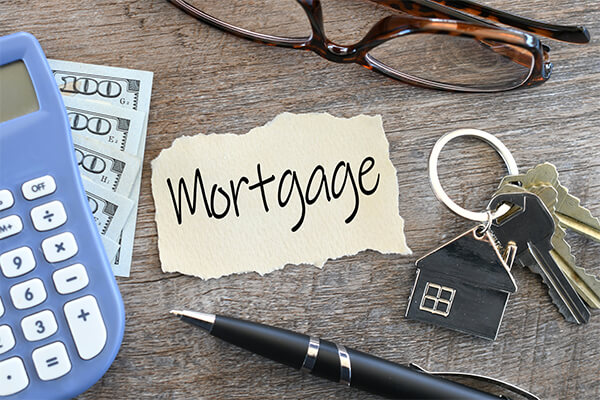
Ideal Investment: Cash-out refinance is doing a mortgage in reverse.
Let’s say you put your 20% down. On a $100,000 house, you put $20,000 down. You get an $80,000 mortgage from the bank. They fund that right to the seller right then. They take your $20,000. They take their $80,000 and pay off the seller. That’s how normally it gets. In this case, I purchased the property in cash and then I went to the bank and said, “I want to get a loan against this property.”
It’s the reverse. You’re doing it in reverse. Buying in cash and then pulling your money back out with a loan. It got appraised for $90,000, which I was disappointed and at the time, I thought I was going to force a lot more equity than $10,000. I even looked at selling the property at that time. I’m like, “This sucks. I want to get out and do something else.” Plus it was only rented out initially for $800. That was 1% of my cost of $80,000, but it wasn’t like that great because I was getting better rental numbers in other markets.
The owner of the property management company convinced me to hold it. He said the properties are going up in this area and that I would regret it later if I sold it, which he was absolutely correct. I rented it out and I’ve held it. The loan payment and maintenance, altogether it’s about $500 a month. I have cashflowed about $300 to $400 per month. Rent has gone up to $900, $950 now, which is not crazy, but the total cashflow since the purchase is probably around $18,000 to $20,000.
I know the market’s been strong so I went back. I contacted my property manager and this property has been rented out almost every single month in the last few years. It’s been cashflow-producing every month since then. I wasn’t that excited about selling it, but he told me that my comps, my listing price would be $210,000 and it would get overbid to probably $230,000.
I had a property that I put $80,000 in. I’ve got a note against it for only $68,000, which the debt pay down is down to $62,000. That’s 6,000 that the debt’s been amortized or paid down since I owned it the last few years, which isn’t crazy, but that’s nice. The rent is nowhere near the value of the property. It doesn’t make sense to hold this for me anymore so I’m selling it. I’m going to take the money and I’m going to put it into other things where I can get a higher yield on the value of that money.
It’s too much capital sitting into that property not making enough yield now. I’m going to sell it and the expected sales profit after closing costs and all like seller fees, paying out the realtor and all of that is right around $135,000. Give or take, probably $10,000. With the rental cashflow plus the sales profit, it’s an expected profit of around $150,000. Think about this, how much cash did I have into this property in the last few years? $12,000. $80,000 total all-in cost and I got $68,000 back when I refinanced the property.
I’ve had $12,000 in this property for the last few years that then turned into $150,000 profit. Now, will every property go like this? No, it doesn’t. I’ve certainly had some properties that I made mistakes on and purchased wrong or whatever and lost. Not huge for most of them. I’ve had some dingers, but I’ve also had a lot of wins. I’ve had more wins than losses and that’s what you’re trying to go for. You’re trying to make more wins than you do losses. This is an example of the beauty you use of real estate and this is why it’s the ideal investment.
This property’s been very passive. I almost forgot about it. I see the money come in and out. I mostly come in every month from the rent, but I haven’t given it much attention or thought. I got it done and rented it out. I forgot about it. It’s been very passive. Not every property is because there are tenants, toilets and trash. That’s the nature of the real estate. You got to put up with that on C, C-plus or even B properties. It’s part of the game.
Is It Really Passive?
If anybody ever tells you that rental real estate is passive, they’re selling you a house of cards. It is not passive. It’s mostly passive, but it’s not 100% passive by any stretch. If your eyes lit up when you heard this, you need to go to my Reel so you can look at the numbers. You can pause it and look at how this all played out so you understand it. If you’d like to get involved with the power of real estate investing, you’re in the right place.
If anybody tells you that rental real estate is passive, they're selling you a house of cards. It's mostly passive but not 100% passive by any stretch. Share on XI created a turnkey real estate investment company that gives you access to quality single-family home properties. We’re now in several markets across the Midwest. Book a call with Nicole, our Head of Investor Relations. Go to HighReturnRealEstate.com and you can book a call with Nicole. She can help you to figure out how to do this successfully. I got a secondary line. If you’d like to text me with questions you have about how this works, I’d be more than happy to answer your questions.
My text number is (269) 247-2881. That is a separate line from my personal cell. If you think you’ve got ahold of my personal line to text me any trolling messages, I don’t have any trolls, not for a while. I will have them. You can text that, and I promise I will answer you directly. Nicole is good, so I would most like you to book a call with her if you’re serious. If you want to generally understand this better, hit me up with questions. I have no problem doing that.
Again, I want to issue the disclaimer that there’s no perfect investment no matter what you do. There are challenges to real estate. You got to know that going in. Remember, it’s like stage 3 of your wealth-building journey. The first stage is investing heavily in yourself through books, paid coaching, seminars and masterminds. Step two is going to be focusing on increasing your income and building a business.
I’m an entrepreneur so I heavily believe in building your own business that you can have a hundred percent control over. That’s how I built the majority of my wealth. Stage three is you take the excess cashflow from stage 2 and stage 1, and you put that into cashflow-producing assets like real estate. This is stage 3. Some of you may be still in stage 1, and this doesn’t apply to you where you’re at or maybe you’re in stage 2 and you still need to focus on investing in your own business, which is great.
If you want to build million-dollar or multimillion-dollar wealth safely and more predictably, then you’ve got to add real estate exposure to your portfolio. You do need to understand how this works. Do this one again if you’re not sure about some of the concepts or things that I talked about. Just listen to it again and text me questions. Let’s get this down so that you guys have more understanding of what it is that you’re going to be doing and how your strategy is going to unfold. Let’s grow some wealth. Have a great day.
—
That’s a wrap for this episode of the show. If you’d like to dive deeper into your own wealth-building strategy, check us out at MyIndestructibleWealth.com and follow along on LinkedIn, Facebook, Instagram, and even TikTok. Send me your questions and your financial challenges, and I promise I’ll respond. Also, I think you’re awesome if you’ll share and leave me a five-star rating and review on Apple Podcasts. Until next time, remember, our mission here is to help you make, keep, and grow wealth that you can enjoy now and for years to come.
Important Links
- @IndestructibleWealth – Instagram
- HighReturnRealEstate.com
- LinkedIn – Jack Gibson
- Facebook – Indestructible Wealth
- TikTok – Indestructible Wealth
- Apple Podcasts – Indestructible Wealth with Jack Gibson


